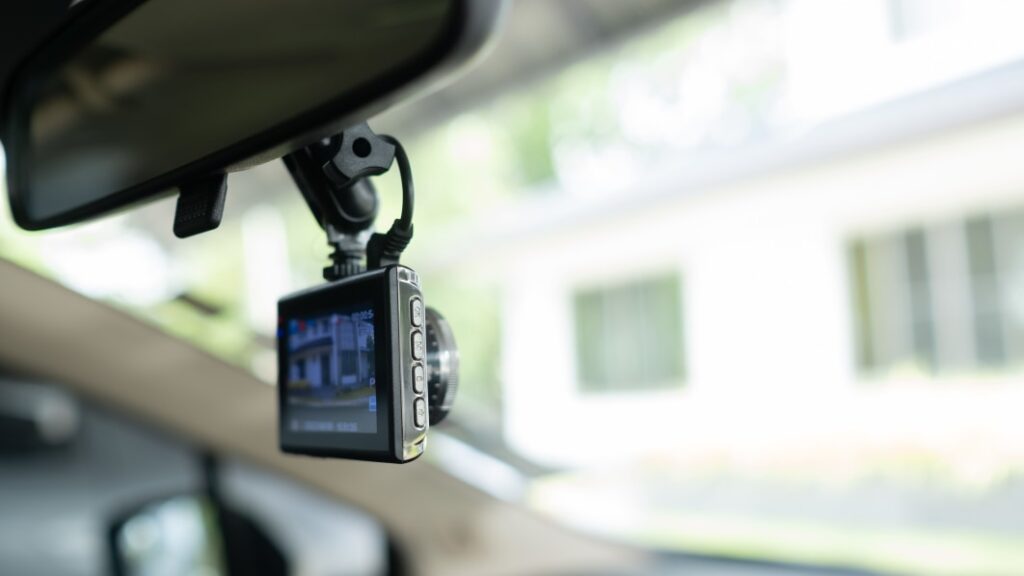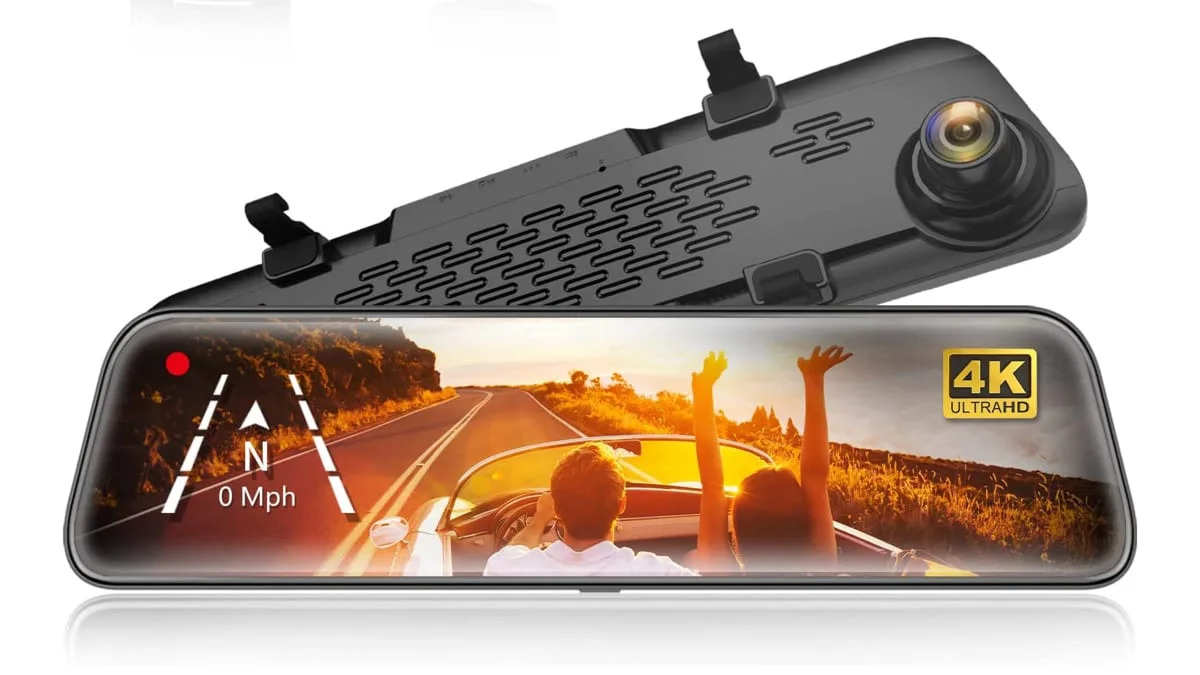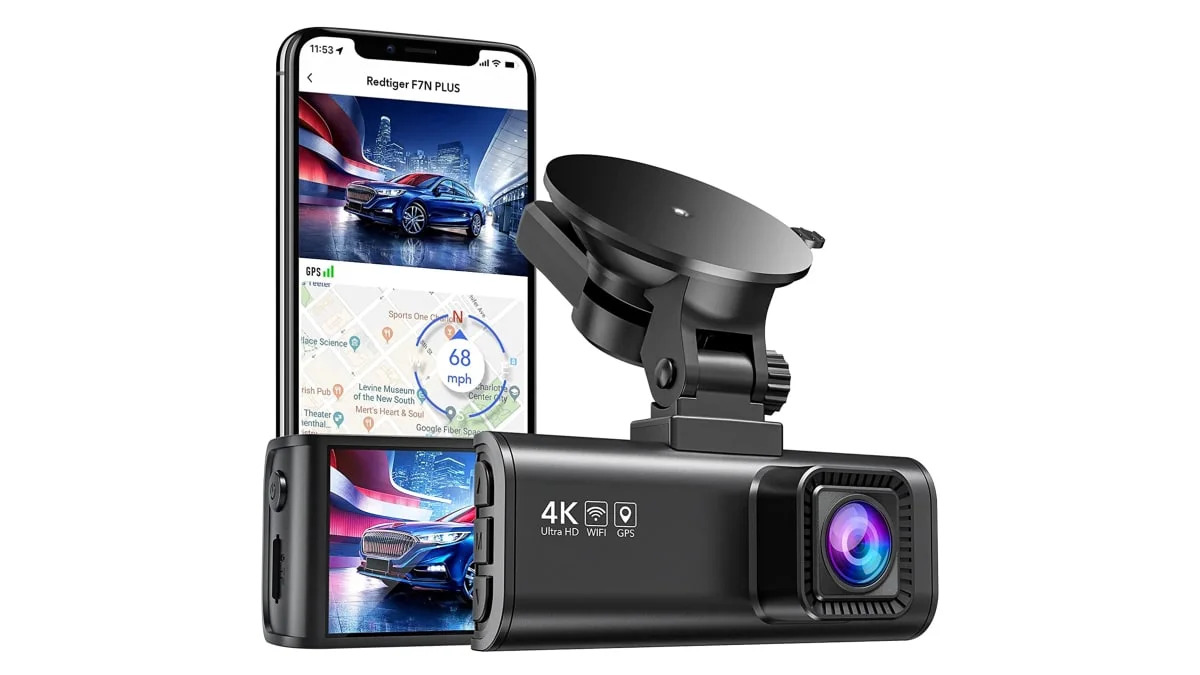The best front and rear dash cams of 2024

Autoblog may receive a share from purchases made via links on this page. Pricing and availability are subject to change.
Owning a dash cam can be a lifesaver for vehicle owners in the case of an emergency. Dash cams record footage in the front or rear of the vehicles and save the data. These are very useful for recording accidents and break-ins while storing the evidence you need in case you have to take legal action. Here are the best front and rear dash cams available on Amazon.
$42.49 at Amazon
Key Features
1080p front and rear camera
Wide-angle cameras
Can support up to 32 GB of storage
360° adjustable angle
Dual lens recording
This CHORTAU Dash Cam is cheap, but it gets the job done. It features a 1080p camera for the front and rear. The rear-facing camera can be used as a backup camera when backing into parking spaces. This camera records with a wide angle to give you a better view.

$89.99 at Amazon
Key Features
4K front-camera
2160P HDR rear-camera
Built in WiFI and GPS
Dual parking mode
Motion detection
Distortion correction
1 year warranty
The Rove R2-4K Dash Cam records in 4k quality with its front camera and 2160p in the rear. It also comes with built-in WiFI and GPS to record your driving location and speed. The night vision technology makes night recordings easier to see. This product includes a 1 year warranty and a full refund in the first 30 days.

$109.99 at Amazon
Key Features
Dual camera
4k front camera
1080p rear view mirror camera
Super night vision
12” touch screen
Time-lapse mode
The WOLFBOX dash camera system replaces your rear view mirror and is more convenient than most dash cam options. It has a built-in GPS that stays on while driving and a 24-hour monitoring system with time-lapse mode.

$99.99 at Amazon
Key Features
This dual dash cam set-up can simultaneously record videos with its front cam at 4K resolution 170° field of view and its rear cam at 1080p resolution 150° angle
Includes built-in WiFi connectivity to allow users to easily view and manage dash cam recordings on their mobile devices via its own app
Built-in GPS records your route and driving speed for videos
Includes collision detection, loop recording, emergency video lock and time-lapse recording
Features night vision recording thanks to the Sony IMX335 STARVIS sensor and Hisilicon Hi3559 processor
Supports up to a 256 GB micro SD card (not included)
The Kingslim dual dash cam can simultaneously record videos in 4K from the front cam and 1080p from the rear cam. It features “the industry-leading Sony IMX335 STARVIS sensor and Hisilicon Hi3559 processor. With super night vision, f/1.8 aperture, and WDR technology, you can record stunning details, even in low-light environments. With front 170° and rear 150° super-wide viewing angles and 6-layer glass fixed-focus lens, it gives you maximum coverage of the road and greatly enhances night vision, providing sharp and clear images and videos.” Thanks to a 3-inch touchscreen, you only need one finger to operate the device and toggle features like collision detection, loop recording, emergency video lock, and even time-lapse recording. This cam, like many of the others in this list, has built-in Wi-Fi and GPS and last but not least, it can handle up to a 256GB SD card for storage. Learn more about the Kingslim cam right here or check out its picture in this 5-star Amazon user review.

$129.99 at Amazon
Key Features
#1 best-selling on-dash mounted camera on Amazon
4K Full HD video quality
24-hour parking monitor
Rear camera 360° adjustable angle
Night vision
Built-in GPS
1-year warranty
The REDTIGER Dash Cam is currently ranked as Amazon’s #1 best-selling on-dash mounted camera. It has a 4K front-facing camera and a 1080p rear camera. Your recordings can be viewed on the REDTIGER companion app on Android and iOS devices. The camera also has a built-in GPS that records your driving routes, location and real-time speed.

$429.99 at Amazon
Key Features
60 FPS
4K resolution front camera
2560×1440 rear camera
Anti-file corruption technology
Advanced Driver Assistance System
1 year warranty
The THINKWARE U1000 Dual Dash Cam is a high-quality dash cam that offers many useful driver assistance features. The front camera can record in 4K UHD or 2K quality at 60 FPS with a rear 2560x1140p resolution camera. It also includes super night vision, safety camera alerts, anti-file corruption technology and motion detection. The Advanced Driver Assistance System will alert you of lane departure warnings, front vehicle departures and potential front collision warnings. This dash cam includes a 1 year warranty.
How do dash cams work?
To put it simply and briefly, a dash camera records a variety of data and stores it for a period of time, which can be used later if there’s an accident or road rage incident to prove that you’re not at fault. (We’re assuming you’re not at fault; more on that in a second.) The dash cam obviously records video, but most also record audio. Many of the more advanced units come with GPS, which can be used to determine vehicle speed, and some come with accelerometers which can sense a crash and preserve the footage taken just before the accident.
Almost every car dash cam will record as soon as it gets power — so, when the car turns on, and the cam is plugged into ignition-controlled power, it’s recording. Beyond that, there are a huge number of variations. Some have LCD screens built in, so you can review the footage without having to plug the unit or memory card into a computer.
Most have built-in flash storage, and many are expandable. When the storage runs out, the camera just overwrites the existing data. That’s fine; no one needs to see you run errands a few days before an accident occurs. If there’s footage you’d like to save, just make sure to offload it before it’s overwritten.
What is a dash cam for?
From a user’s perspective, the point of a dash cam is to protect you in the event of an accident, and it relies on the notion that the driver using one is not at fault. The dash cam can’t cover for you if you did something wrong, but it can help prove that you were in the right. It records what it records. Let’s say an unscrupulous person throws himself in front of your car, or stands on the brakes on the freeway, causing an incident. This is where a dash cam shines. That evidence can be used to help prove that the incident wasn’t your fault. Otherwise it might be your word versus the other person’s, and perhaps you’ll take a portion of the blame … which could increase your insurance premiums, or worse.
If you use one, you want to drive carefully and legally. Let’s say you were speeding through a school zone, looking at your phone, and sideswiped a parked car with a GPS-equipped dash cam recording your position, speed, and the incident. It’ll be pretty clear from the dash cam footage exactly what happened.
Oh, and don’t assume that you can simply delete footage after you do something that’s your fault. While the specific laws in your locality may vary, let’s just say that the authorities won’t particularly like the fact that your otherwise operational dash cam conveniently is missing a chunk of footage. Of course, you’re going to drive safely, so this won’t be an issue. After all, a dash cam should be a constant reminder of that.
What’s the best dash cam to buy?
As with anything, there’s no definitive answer here, it’ll just depend on your own individual needs. However, if you’re looking for a truly top-of-the-line cam, we’d recommend checking out the Nextbase 622GW, which you can check out above, or read our full review of right here.
How much does a good dash cam cost?
Dash cams have a very wide ranges of prices, from as low as around $25 to as high as several hundred. However, if you don’t have any specific needs and are just looking for a pretty average dash cam to get the job done, you’re probably looking at somewhere around $40 – $100.
Is a 4K dash cam worth it?
For most people a standard HD dash cam will probably get the job done, but 4K cameras do offer some benefits thanks to the higher resolution. For instance, wide angle lenses, as featured on most dash cams, can sometimes make license plate numbers harder to read since they’re often small in the frame, but the heightened resolution of 4K video can make that a bit easier.
Do dash cameras record when the car is off?
Most dash cams don’t record a continuous feed when your vehicle isn’t running, however, many cams nowadays include a “parking monitoring” feature that activates the camera automatically when your car is hit, and some even use a motion sensor to turn the camera on when anyone even approaches your vehicle.
Can I use dash cam to monitor my driveway?
As mentioned above, most dash cams don’t record continuously when your vehicle is off, so if you’re looking for a way to continuously monitor your driveway, we’d recommend something like an outdoor security cam instead.
Is a dash camera legal?
Dash cams are legal in all 50 states, but many states have regulations on where you can place the camera in your vehicle. To check learn more about your own states regulations, check out this handy guide by GPSTrackIt.
How are dash cams powered?
Most dash cams need to be plugged into your car’s power socket to function, but many have emergency back-up batteries that allow use for a short period of time even when unconnected.
Pros and cons of dash cams
Dash cams offer many great benefits. They record video footage of your accidents, monitor your vehicle, track your location and add extra security to your vehicle. But there are a few downsides. Spending money on a dash cam may not be worth it for those who don’t drive often. Another potential problem you could face is the dash cam field of view only records front and rear, so collisions from the side of the car won’t be recorded.
How to install a dash cam
Each dash cam will have instructions included in the packaging. On most occasions, you need to place the sticky rubber strips or suction cup to your windshield in an optimal place. Next, you have to plug the wires into the camera and to the USB port or cigarette lighter. Some dash cams are wireless and run on an internal battery, but they must be charged constantly if you drive often. Rear dash cams can be a bit trickier, as you have to mount it on your rear windshield and run a wire across your headliner.



